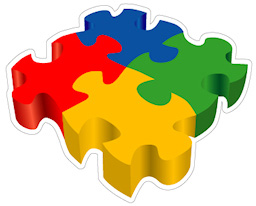Earlier this year, the Department of Health launched Think Autism – our cross-government update to the 2010 Adult Autism Strategy. Created with the involvement of people with autism and Asperger’s syndrome, as well as their families and carers, it brings new focus and resolve to the task of building communities in which easy access to information, services and support are the norm.
At the time, Jon Rouse, our Director General for Social Care, used his blog to wholeheartedly endorse this enterprise, emphasising the need for inclusion and innovation at a local level.

As we look towards implementation, our commitment and desire to keep the voice of ‘end users’ at the heart of the strategy remains paramount, which is why the Department of Health is seeking to recruit four members to the National Adult Autism Cross Government Programme Board.
The vacancies offered are intended to reflect the needs and views of both those living with autism and those who live or work in a supporting role. To this end, positions are available for two people on the autistic spectrum who can self-advocate (with without support from a carer or other trusted supporter) and two who are family carers of adults with autism or children who are preparing for adulthood.
This is a fantastic opportunity to promote the principles and goals of Think Autism and to drive implementation to strengthen positive attitudes within communities.
For further information and how to apply please visit Working for DH and scroll down to find the full vacancy details. Deadline for applications is 12 noon Friday 5 September 2014.
In the meantime, if you would like to share your views and experiences on what works in your area, we’d love to hear from you. Use the comment box below and start the conversation!
6 comments
Comment by Jan Tchamani posted on
I'm secretary of a residents' association on an over-50s sheltered housing scheme. We have a dear neighbour with Aspergers. Recently, he was getting very wound up, so there was intervention and a social worker called. He told the social worker he wasn't 'vulnerable' and didn't need support. Of course he did. We're told nothing further can be done, because he isn't willing. But he does need support, especially handling situations where he can lose his temper, which leaves him upset for weeks. Why is there no support for people like him? It should be done via a regular appointment with the GP/psych services, as a matter of course, in my view.
Comment by Paula Hancock posted on
I have two sons with Aspergers - 28 and 24 respectively. They both feel they can cope independently, but I as a parent feel they need help - not necessarily 24/7 but certainly help with independent living - cleaning, finances, food shopping, meals and support when seeking socialisation. Both my sons struggle communicating to people, both struggle attending medical appointments because they cannot get their thoughts through to the appropriate people. They do on occasions have some violent outbursts, that to the unknowing can be scary. I say they do need help and support within the community
Comment by Robert Coyle posted on
I have aspergers and find the biggest problem is that carers are neuro-typicals(normal) so as such they rely on empathy and social 'radar'. Yes we get angry, because nothing seems to make sense to us, we are pedantic so all communication should bear that in mind, "see you soon"???? what does that mean?. Yes we have a different neurology, we have problems with the world people call normal, but intrusive caring is counter-productive. We have trouble with social interaction but its not all one way, sometimes the recipient is the problem. Imagine a tourist with no english trying to comunicate with you, even gestures do not mean the same (nodding is no in some cultures), most people would try to adapt there language or use other forms of communication. Aspergers makes social interaction like trying to speak a different language, but the other person doesnt moderate their language, they cant see anything wrong or perhaps they feel that the person with aspergers is using english just like them. We arent,' normal' people use empathy as a major part of their interaction. they are looking for signs, gestures and expressions that are lacking in Autistic people. what they fail to accept is that they feel fear because the signs are not there, then the autistic person get angry and so it escalates. We require a more integrated and understanding system to deal with people on the spectrum, we need to get out of the 'them and us' mindset(very difficult as we are so different and the spectrum is very wide).
Anyway if you ask "how are you" you should be willing to listen to the answer, it took me many years to learn that the answer is expected to be "Fine"
Comment by Sue Carter posted on
I am pleased to see that autism is being recognised more effectively but ............ what support is there for children when there is a strong pointer to autism? Parents of autistic children (wherever they are on the spectrum) need help and guidance to know and understand what they, as parents, need to do to hep and support their children through what could be a difficult time.
Comment by Dan Midwinter posted on
Iagree that parents of children with autism need more support. I have family friends who have had to manage with very little support from the local council whilst caring for thier autistic child and this has put a great deal of strain on them.
Comment by Autism Services posted on
children with disabilities gives hope and promise that a child with Autism does have a voice and can be heard much sooner.Kids having the opportunity to be kids and explore their environment through play. We often refer to ourselves as an un-museum and today really demonstrated what that concept means to the community.